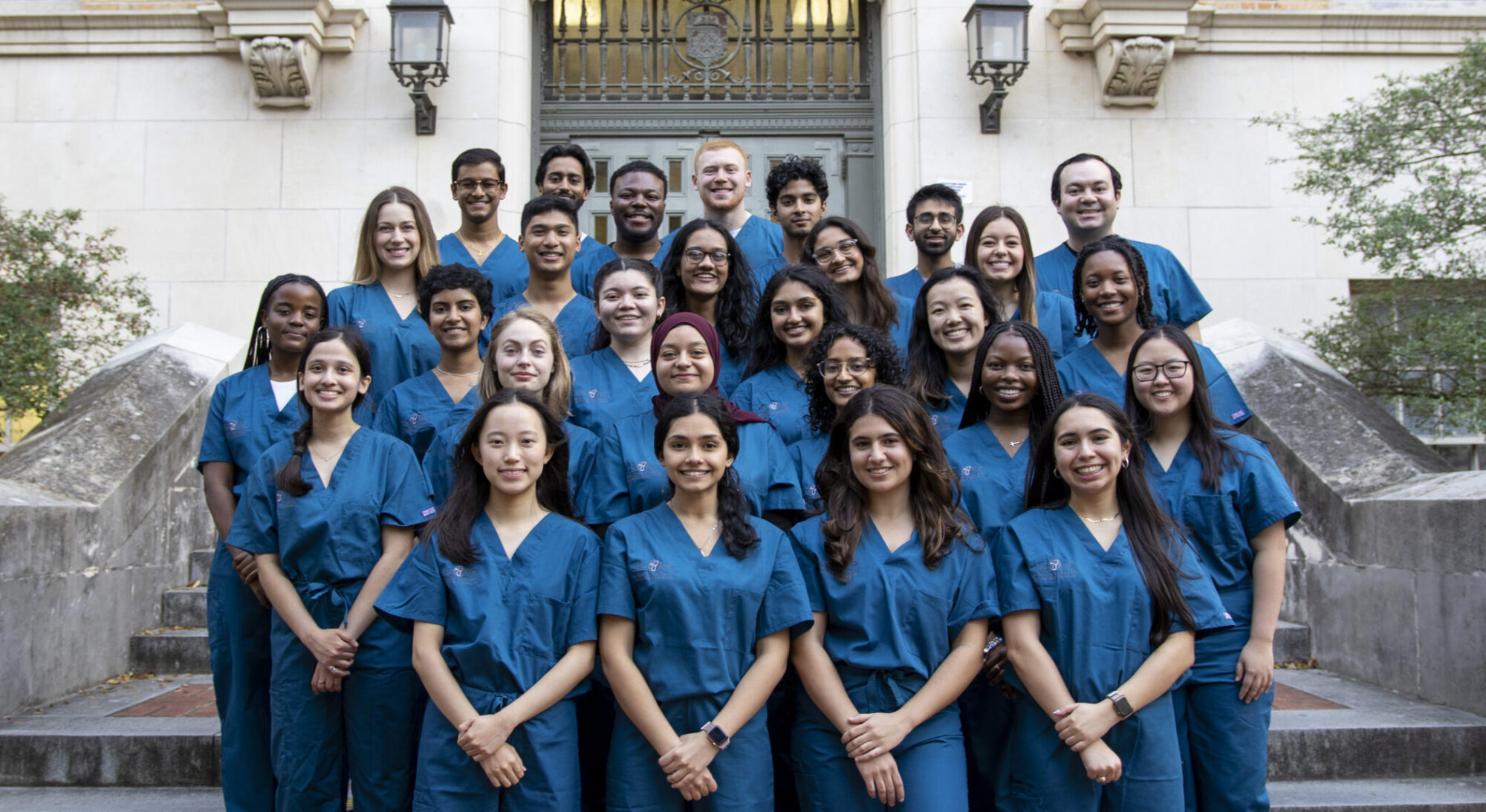Application and Interview Process
In order to become an intern, students must submit an application and be interviewed by a panel of HCMP coordinators and program directors. Interested students are encouraged to attend the information sessions held during the spring and fall semesters. The applicants must have completed several requirements after which applications are reviewed. Interview spots are offered to competitive applications, from which the final incoming class is chosen. More info can be found on our application page!
Intern
Before beginning their rotations, the students must have an updated TB screening, which can be done at the UT Student Health Center or at Brackenridge Hospital. Interns must throughly understand and have HIPPA certification before they can step foot into the hospital environment. CPR certification is recommended, but can also be taken after inclusion into the program.
The program consists of twelve weeks of actual rotations during which interns devote eight hours per week attending clinical and non-clinical rotations. In the clinical rotations, students engage in a variety of activities with their mentors, which include– attending rounds, observing patients, interacting with health professionals and staff in clinical setting, accompanying mentor to surgery, and sitting-in on consultations. Interns shadow adult, pediatric, and specialty physicians. The non-clinical rotation at the Texas Department of Health broadens their perspective of medicine by gaining experience in the public health sector. Students have the opportunity to gain an insight into the professional life of the various health care workers as well as acquire non-clinical exposure in the field of health care administration.
The interns are assigned into groups for their rotations, but are expect individually to set up their own schedule to shadow physicians. The adult rotation consists of shadowing eight hours per week at nearby Seton hospitals or at private practices. The non-clinical rotation at DSHS involves spending four hours per week in a public health area of their choice. At the same time the adult and DSHS rotations take place, other interns participate in pediatric rotations. The pediatric rotation also consists of shadowing eight hours per week at nearby Seton hospitals or at private practices.
Interns also attend weekly HCMP meetings with other interns, coordinators, and directors. Each meeting, interns are required to share their weekly shadowings experiences to the rest of the organization.
Coordinator
In order for this program to remain functioning, HCMP is created as a self-perpetual program. The interns are expected to participate as coordinators of subsequent semesters of the Health Careers Mentorship Program after their semester of internship, supporting and guiding the new interns. The coordinators must manage the program. This involvement requires interaction with hospital and clinic directors, faculty, and staff. They must also try to improve the program and envision new directions for the program.
